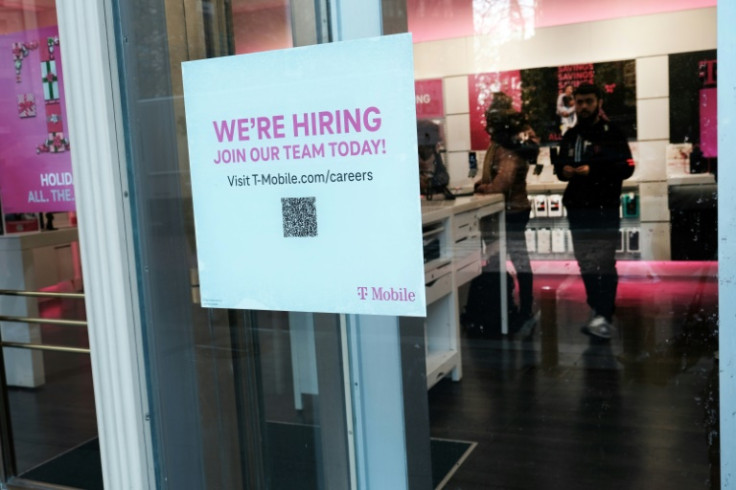Job Gains, Rising Real Wages Could Change The Game On Wall Street
Solid job gains and rising real wages could set the U.S. economy on to another virtuous growth cycle, ending the bear market on Wall Street.
The U.S. economy continues to churn out more jobs at a healthy rate, according to the U.S. Bureau of Labor Statistics (BLS). The nonfarm payroll report released last Friday showed that the U.S. economy added 253,000 jobs in April, exceeding the consensus expectation of 180,000.
Meanwhile, BLS revised job growth downwards in February and March, bringing average gains over the past three months to 222,000 from around 300,000 at the end of 2022, still robust growth in the face of ongoing monetary tightening.
"The report today announcing 253,000 jobs added in April once again shows the staying power of the jobs market, even in the face of continued economic uncertainty," Bill Armstrong, president of recruiting at Safeguard Global, a provider of workforce management solutions, told International Business Times. "Despite news reports of more layoffs and the number of open jobs decreasing, the economy continues to produce jobs in the tech industry."
Cody Harker, head of data and insights at Bayard Advertising, cheered the recent labor market data, providing further insight into the continued U.S. job growth.
"April delivered another month of jobs results that beat economists' expectations as the labor market remains resilient," Harker told IBT. "Despite a general cooling trend, the market pushes forward again, driven by solid momentum in COVID-sensitive verticals and continued consumer spending on services. At Bayard, average clicks were flat from March to April, indicating jobseeker activity and interest also held steady into the second quarter."
Persistent job gains have helped drive the unemployment rate to a multi-decade low of 3.4%, helping the nation's labor force make better pay, especially those at the low end of the income distribution. Since 2019, real hourly wages at the 10th percentile have risen by 9.0%, even in high inflation.
Job and wage gains among low-income Americans who usually live paycheck-to-paycheck are bullish for the U.S. economy. Moreover, these Americans have a high marginal propensity to consume, meaning spending every extra dollar they earn. As a result, they have been helping the consumer sector, which accounts for nearly two-thirds of the nation's Gross domestic product (GDP), grow even in the face of elevated inflation and rising interest rates.
Furthermore, the holding up of consumer spending has saved the U.S. economy from another recession thus far, with real GDP growing at a moderate rate of 1.1% in the first quarter of 2023, according to a preliminary U.S. Bureau of Economic Analysis (BEA) report released last week.
If consumer spending maintains its momentum, it could lead to more job and wage gains, setting the U.S. economy in what economists call the "virtuous cycle" of growth.
A virtuous cycle of growth could give a significant boost to corporate earnings, putting an end to the bear market on Wall Street.
Already, earnings are beginning to look better than what analysts have expected since the fourth quarter of 2021, according to FactSet, which monitors the S&P 500 first quarter of the 2023 earnings season.
"Overall, 85% of the companies in the S&P 500 have reported actual results for the first quarter of 2023 to date," John Butters, vice president and senior research analyst at the company, said in a blog post.
"Of these companies, 79% have reported actual EPS above estimates, above the five-year average of 77% and above the 10-year average of 73%. In aggregate, companies are reporting earnings that are 7.0% above estimates, which is below the five-year average of 8.4% but above the 10-year average of 6.4%."
Still, Thomas Samuelson, CFA, CMT, chief investment officer at Vineyard Global Advisors, is skeptical about the labor market's strength, as it could dash expectations for rate cuts in the second part of the year. As a result, he believes the stock market is vulnerable to further losses when expectations for interest rate cuts this year fail to materialize.
"The hotter than expected April jobs report, while good news for U.S. workers, will keep the Fed in its inflation-fighting mode and is unlikely to start cutting rates this summer, as the market currently believes," he told IBT.

© Copyright IBTimes 2024. All rights reserved.






















